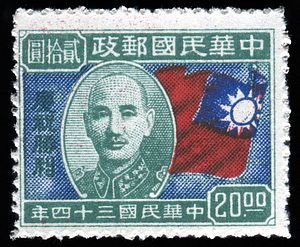Every client cheats.
A recent article in the journal of Cold War History shed light on the 1960s-era relationship between Taipei and Moscow, a relationship that both sides kept quiet for the duration of the Cold War.
The article, by Xiang Zhai and Ruping Xiao, dug into some archival material on the Taiwanese side of the relationship. It revealed that the government of Chiang Kai-shek made secret approaches to the Soviet Union through intermediaries, and that talks between the two sides continued for several years.
Part of the impetus came from the Sino-Soviet Split; the hostility between the PRC and the USSR could only redound to Taiwan’s benefit, or so it seemed. It must also have become clear to Taipei that the world’s most capable force for destroying the PRC was the Red Army; in case of the very real prospects for war between China and the USSR in 1968 and 1969, the Nationalist Party could stand to benefit from the possible destruction of the People’s Liberation Army. But Taipei was also concerned (with good reason) about the solidity of the alliance with the United States.
Of course, the Chiangs had some experience with the Soviets. During the period of the First United Front, Chiang Kai Shek spent three months in the USSR, studying the Soviet political and military system. Chiang Ching-kuo spent twelve years in the USSR as a guest, then hostage, of Josef Stalin. The relationship went bad after that, although the Soviets never had particularly warm relations with the Chinese Communist Party.
In the end, the talks came to nothing. The USSR and the PRC engaged in nothing more than a few border skirmishes. Chiang Kai-shek worried that, in the event of open war, the Soviets would harbor broad territorial designs against China, leaving behind a rump state. Moreover, despite their ages ago collaboration, the Chiangs had little ideological affinity with the Soviets. Although we know less about Soviet motivations, public knowledge of a diplomatic relationship between Moscow and Taipei would have played poorly in the USSR’s ideological competition with the PRC.
Still, the truth remains; clients always hedge their bets. This is the case even when one state is utterly dependent for its security upon another. On the one hand, this is a constant worry for any state (like the United States) trying to preserve a multilateral international political order. On the other hand, Washington can perhaps relax a bit in the knowledge that no steps can ever fully reassure an anxious ally.

































